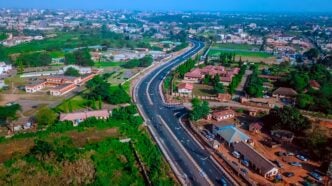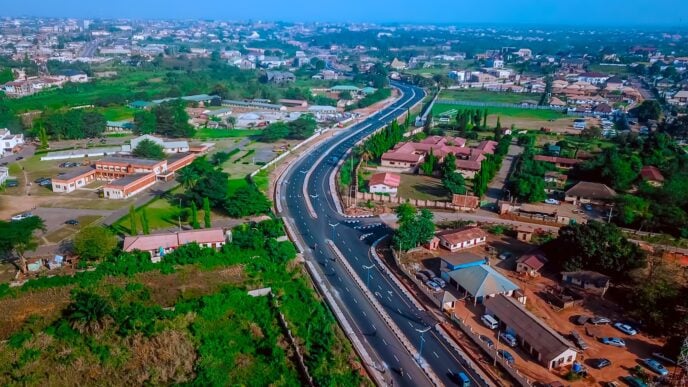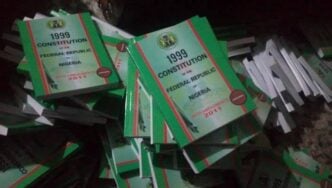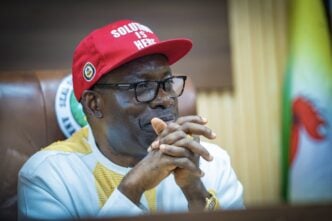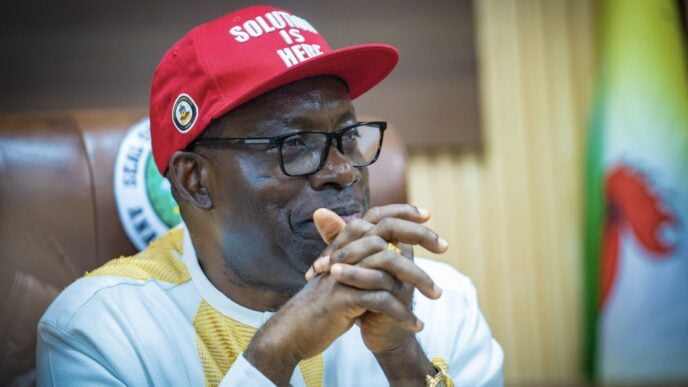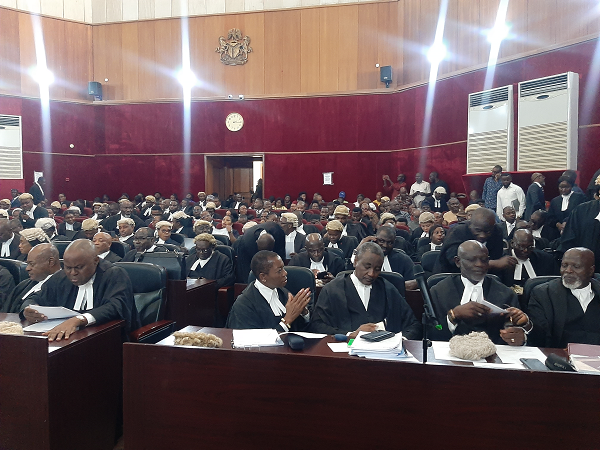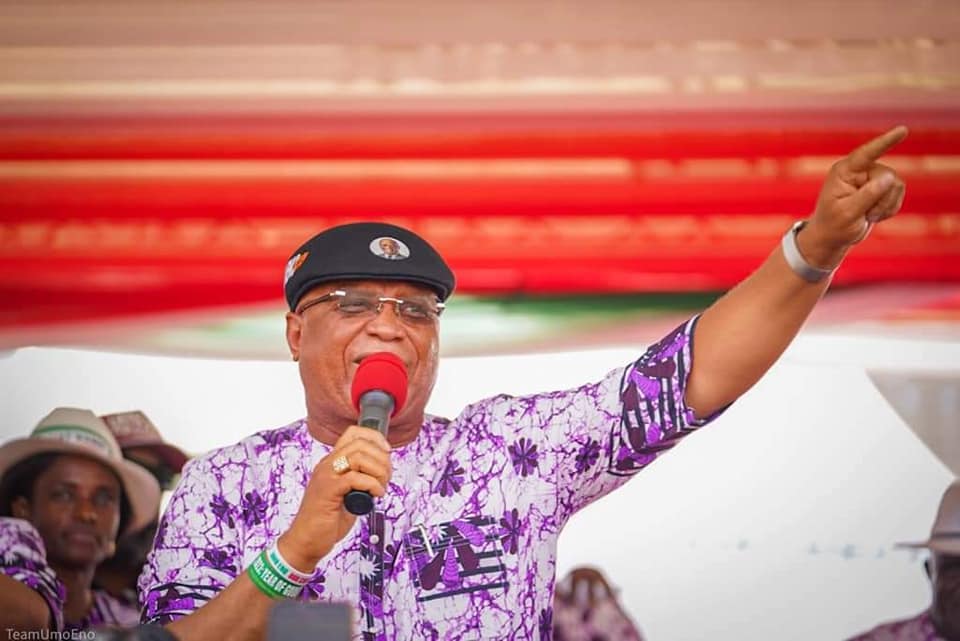Dennis Otuaro
It is barely over a year since Dennis Otuaro, PhD, was appointed as the Administrator of the Presidential Amnesty Programme. Still, in that short time, his impact as the region’s strong voice, advocate, and the president’s outreach arm, bringing hope and development to the Niger Delta, has grown significantly.
When he was appointed in March 2024 by President Bola Tinubu, his designated beat was the Presidential Amnesty Programme (PAP), which was established in 2009 to manage the disarmament, rehabilitation, and reintegration of frustrated Niger Delta activists, some of whom had taken up arms against the government to protest the region’ economic marginalization and the degradation of its environment by oil exploration.
From 2009 until March 2024, the amnesty programme was led by several administrators, who bore different titles and did their best to achieve its mandate of peace and security in the Niger Delta through the payment of stipends to ex-agitators and the provision of vocational and formal education opportunities to members of the communities impacted by the militancy.
Then enter Otuaro. His vision for the Programme is bold, transformative, and inclusive. Apart from the agitators who are on the government payroll, he has refocused the amnesty programme to capture the next generation of Niger Delta leaders, expanding its frontiers to cater to the interests of a range of stakeholders, especially women and young people.
Advertisement
His strategy centres around a broad range of initiatives designed by him and his team to foster enduring peace and prevent any resurgence of militancy in the Niger Delta region. One of these is the Programme’s intervention in expanding education opportunities, especially the scholarship scheme for undergraduates from the Niger Delta.
Although Otuaro did not initiate the undergraduate scholarships scheme, which had existed for many years before his appointment, he has so reinvigorated it that the award, to use a metaphor, has been given a new lease of life.
Before Otuaro, only a few hundred Niger Delta students managed to get the annual scholarships through a cumbersome process, as it was opaque and many had criticised it for being unfair and lacking integrity. Perhaps this was because the previous administrators did not consider education a top priority and viewed the scholarships as not central to their role at Amnesty.
Advertisement
But Otuaro’s vision is different. In his first year as administrator, the undergraduate scholarship scheme has increased from a few hundred students to over 3000. Even more, the award process is now more open and inclusive, starting with a media announcement for interested Niger Delta youth to apply, with assurance that merit will play a significant role in the process.
And merit did play a role in the grant of the scholarships for the current session. Many prospective students applied, did the aptitude tests, and were awarded the multi-year scholarship, which covers tuition, accommodation, and living expenses, with little or no influence from the amnesty office, a far cry from what used to happen in the past, when there were complaints that money had exchanged hands.
In addition, the overseas postgraduate scholarship, suspended by the previous administrators, has been reinstated and broadened. For this current academic session, about 70 Niger Delta postgraduate students were awarded foreign scholarships to universities in the US, Canada, Britain, and other overseas countries. Otuaro made sure that the awardees are pursuing courses that are development-focused and relevant to the material needs of the Niger Delta people.
Otuaro’s footprints are also visible in vocational training. With 98 delegates deployed for maritime-related skills training, including refresher courses at Joemarine Institute for Officer of the Watch (OOW) certification; 40 Niger Delta youth trained as aircraft maintenance engineers; another 39 deployed for on-the-job training at organisations like Seven Star Global Hangar and Aero Contractors; and four cadet pilots sent to South Africa for type-rating training, with successful graduation and return to Nigeria.
Advertisement
The focus on human development and young people appears to be a genius move by the administrator of the amnesty programme, and a strategy to stop future militancy before it even happens. In the mid-1990s and early 2000s, the Niger Delta boiled as several groups took up arms against the government and oil companies to protest the neglect of the region, which is the goose that lays Nigeria’s golden egg, as nearly all the oil exploration and production take place there.
Pipelines were destroyed, workers kidnapped, and oil production was significantly disrupted, leading to huge economic losses for Nigeria and the oil companies operating in the region. The militancy also led to a humanitarian crisis, with many communities suffering from the effects of oil spills, environmental degradation, and violence. The dire situation drew global attention and concern, which highlighted the need for a comprehensive approach to addressing the root causes of the conflict and promoting sustainable peace and development in the Niger Delta region.
The federal government’s response was the amnesty programme in June 2009. Over three years, up to 2012, three phases of the programme were declared to reintegrate thousands of armed militants and pacify the region. It has been over a decade and a half since the first phase of the amnesty scheme began, and many of the beneficiaries are thus getting old and have probably lost the appetite for armed struggle.
Yet the conditions that gave rise to the uprising still exist, despite the government’s efforts over the years. The fear is that those challenges may breed the next generation of militants, angry over the prevalence of poverty and underdevelopment of the Niger Delta.
Advertisement
That is why Otuaro’s strong intervention in human development in the Niger Delta, through various initiatives in formal and non-formal education, is brilliant and commendable. That he has implemented the schemes openly and transparently, thus giving the son of a fisherman and the daughter of a boat-maker in the creeks a chance to make something of themselves, is nothing short of transformative, providing hope and opportunities to the overlooked voices.
And he has done all this while not neglecting the original agitators on the government payroll, ensuring they are paid promptly, resolving challenges related to payment delays, offering suitable training to wean them off government handouts, and advocating for qualified beneficiaries’ placement in jobs in the public service.
Advertisement
Otuaro’s impact in just one year is visible and enduring. An asset to the current administration, he is proof that government in its purest form is not merely an idea or an institution on paper but a living presence, something that can be seen, heard, and felt in the everyday lives of the people.
Advertisement
Views expressed by contributors are strictly personal and not of TheCable.


